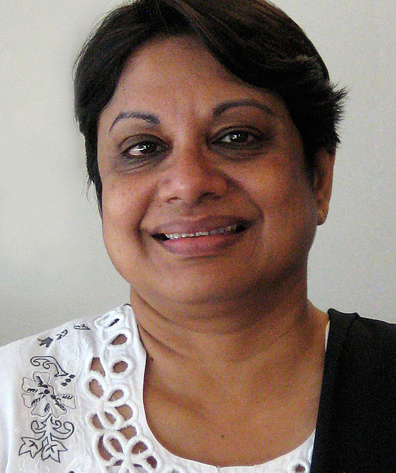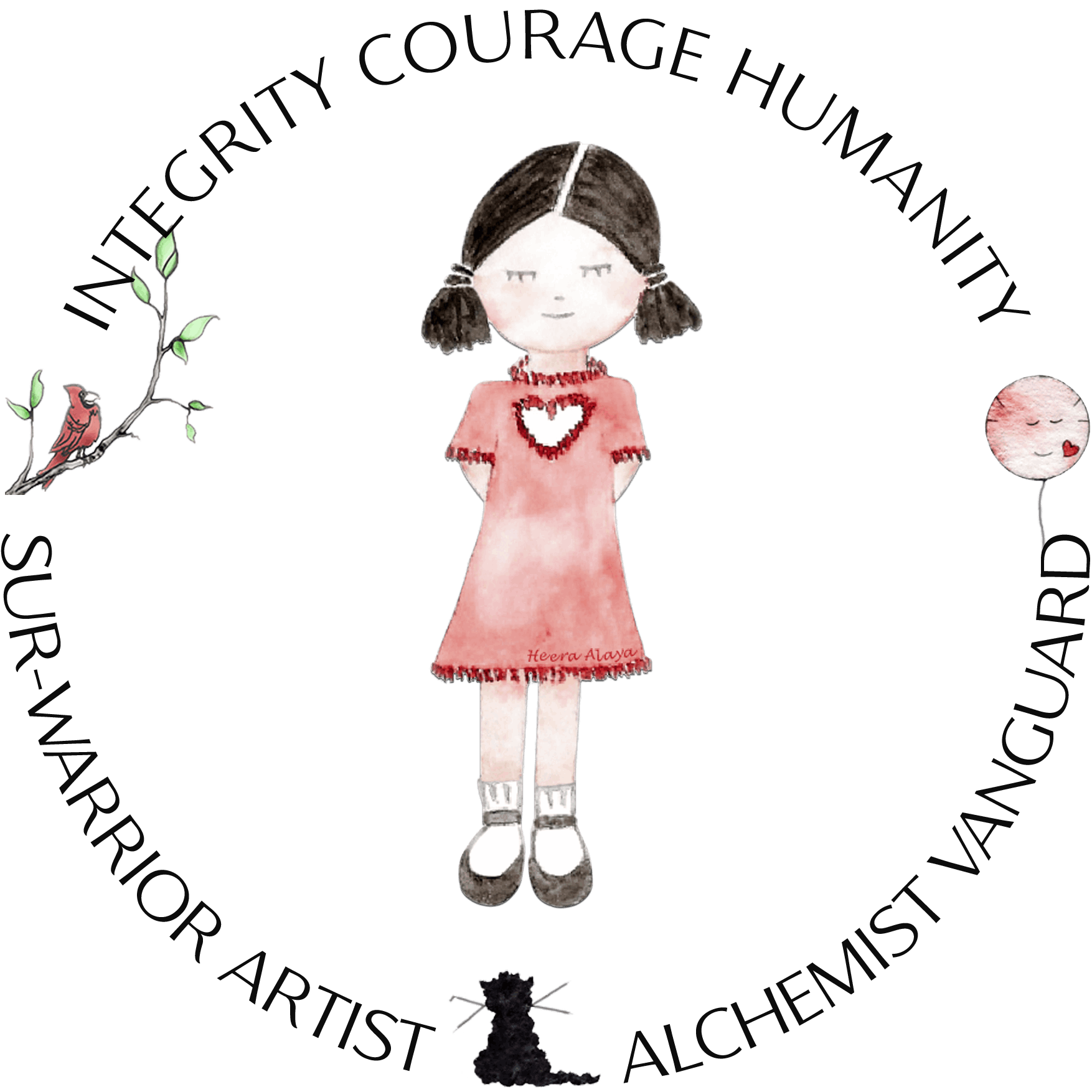
“If you have suffered,
you understand all those emotions
[kindness, love and respect] much more
than if you don’t.”
RADHIKA COOMARASWAMY
Under-Secretary-General of the United Nations
April 4th, 2011
OPEN WINDOWS | In Conversation
Sri Lankan lawyer and human rights advocate Radhika Coomaraswamy is the Under-Secretary-General of the United Nations and a Special Representative for Children and Armed Conflict. A leading voice for women and children, Ms Coomaraswamy speaks to me on the impact of war on children, rehabilitating and reintegrating child soldiers into society and the unique challenges modern warfare poses for those seeking to protect the most vulnerable citizens.
Heera Alaya: This is your fourth year as the Under-Secretary-General of the United Nations, Special Representative for Children and Armed Conflict. What are the significant developments in the rehabilitation of children in conflict regions?
Radhika Coomaraswamy: During the last ten years, especially the final four to five, there has been international awareness on the rehabilitation of children in conflict regions, the creation of international norms and standards, and mechanisms for accountability of those who recruit children. Plus, we now have a greater understanding of what it takes to rehabilitate and reintegrate children. There is a great understanding, a shared knowledge among child protection partners, and an ability to deal with rehabilitating children more effectively than we did earlier.
What obstacles do you face while delivering assistance to individuals in conflict areas? Do you encounter situations where a shortage of funds results in having to abort programs for children?
We rely primarily on UNICEF and the Department of Peacekeeping as facilitators to bring the UN system together. The major obstacle they face is getting parties to give access. The governments or parties controlling the territory will not provide you with access to deliver the services you need. We have systems in place; our humanitarians with worldwide experience are excellent. Once they get access, they will deliver, whether the World Food Program [WFP] or UNHCR [United Nations High Commissioner for Refugees]. And with funds, they need to prioritise where to give—nutrition, water and health, and then education.
Do the size and geographic location of war zones dictate the allocation of resources—what goes towards children’s education, welfare, and rehabilitation?
It’s not so much the area of the war zone but the number of affected people. Usually, humanitarians make appeals to raise funds based on the number of individuals affected. The war zone can be a small area with 10 million people or a large area with one million people.
Do countries that fail to follow international laws regarding the use of children as soldiers face repercussions?
It’s not only countries but also non-state actors [that fail to follow laws]. Criminal prosecution is one way to put pressure. The International Criminal Court tried the Lubanga case, the first case tried on a child soldier; we hope there is an appeal for his release (there is the possibility of being brought up before the court now). It might be one or two cases, but it has a deterrent effect on others; that’s important.
Second, [United Nations] Security Council Resolution 1612 now puts forward the possibility of targeted measures against parties that recruit and use children; they haven’t enforced it with any particular part as a process is needed to do that. And I must say that in some war negotiations with armed groups, the threat of sanctions has worked—they have come forward and released children.
How can a country or state dominated by a single political family, dictatorship or military rule rooted in corruption ever become genuinely democratic?
To some extent, we have terrible dictatorships around the world. In the end, one can only successfully overthrow or work with those dictatorships if the people come forward in a nonviolent way; if you come forward violently, you often replace one tyranny with another. Nonviolent movements worldwide, like Gandhi or Nelson Mandela, replace oppressive governments with democratic and free societies.
Often children from impoverished families are kidnapped, drugged, manipulated, raped and forced to become child soldiers. If they are released, society shames child soldiers. The lives of these children, born into poverty and hardship, end up being a series of brutalities. How do these chains of events damage children?
First is the physical damage of children—many children are killed as soldiers or raped as women. Second is material damage—children are taken out of school and not allowed to follow education, affecting a lifetime of opportunities. And third is the psychological damage to children—they are separated from their families, victims of sexual violence, and forced to perpetrate acts of violence.
Children need multiple layers of healing.
For the children of conflict zones, getting back to any sense of normality must be arduous.
Yes. Rehabilitation requires concerted efforts on the part of aid givers and the community.
You state that children are willing followers in wars that are ethnic or ideological. For people who fail to comprehend this reality, would it be accurate to say that children with impressionable minds follow their role models—their parents or religious leaders—who end up exploiting them?
Yes, children are very impressionable and can be easily emotionally manipulated, especially with the idea of romantic death and romantic hero. So, certain ideologies and people appeal to children, getting them to “voluntarily” join. Whether children know how to make sound judgments is another question.
To learn about or see images of children engaging in violence is difficult to digest. But if we look around us, children participate in terrible acts in peaceful areas, maybe not so horrific.
Yes, but a large percentage of child soldiers are abducted and made to follow orders, and their families, who are convinced of the ideology, think that sacrificing a child is all right.
Your field trips take you from Afghanistan to Gaza and Japan to Rwanda; what are the common threads of violence against women?
A common thread you see regarding sexual violence is that it’s more prevalent in some wars than others.
I recently read a Yale professor’s research; he has done an extensive study on sexual violence, which clearly shows that all wars don’t produce the same level of sexual violence—it depends on the leadership.
If the warring parties’ leadership makes it clear that they will not tolerate sexual violence, then the parties fall in line. In contrast, if the leadership engages in sexual violence, it becomes prevalent.
This research gives you more information that leaders who allow sexual violence should be prosecuted, tried, and put away. Women in conflict regions face other issues besides sexual violence. Women and children are trafficked or made into combatants as they are the more significant percentage of refugees and IDPs [Internally Displaced Persons]. In many African countries, orphan-led families are another significant issue—the parents have been killed or deserted, so the eldest girl child takes care of the family.
I quote you from your 1999 address delivered at the Third Minority Rights Lecture in Geneva: “This dismissive attitude to sexual violence along with a hidden belief that ‘boys will be boys’ has prevented sexual violence from being dealt with as a tragedy of war.” How can this offensive and damaging conduct of men ever get addressed when we fail to ask for accountability?
There were a lot of stories of sexual exploitation by UN peacekeepers when they were first becoming a phenomenon in Cambodia. At that time, I was a Special Rapporteur on violence, and some of the women’s groups within the UN raised the issue of sexual exploitation. The Special Representative of the Secretary-General, during a lecture, said: “Boys will be boys; I do not know why people are making such a thing of this [sexual exploitation by UN peacekeepers].” So we all [women’s groups] wrote to the Special Representative of the Secretary-General, slamming him, and he felt awful, and now he has recanted. Now, the UN has a lot of systems in place to prevent sexual exploitation.
Also, in many crimes relating to women, you blame the victim for the crime: “Why was she raped? Because she was wearing provocative clothing?” In society at large, the victim is blamed. Many justifications are put forward for terrible crimes of violence. And I think at one point, we have to say we will not tolerate these justifications. People who abuse people have the freedom to abuse people, but people cannot justify their abuse.
Children in conflict zones use profound words—like kindness, love and respect—to describe their loved ones. From where does their emotionally rich vocabulary stem?
If you have suffered, you understand all those emotions [kindness, love and respect] much more than if you don’t.
I remember talking to Ishmael Beah [a former child soldier]; he was about 24, had just come out of college, and kept uttering the most profound things. When you have suffered a lot and seen life at its harshest, you have a certain wisdom. All these emotions (kindness, love, and respect) are much stronger.
Children in conflict zones also aspire to help others by becoming doctors. What can we learn from their wisdom?
I met this girl in Afghanistan who had been attacked by both sides—the Taliban had just bombed her school, and her family had been air-lifted; she wanted to become a teacher to do something in her society.
Practically all these children wish to be in the service industry—teachers and doctors, as they see role models in humanitarian aid workers and teachers. These children [in conflict zones] don’t say they want to be hedge fund managers or go to the financial sector.
Laughter, music, and mischief should fill a child’s life; however, deathly sounds of violence and torture are hammered down on children in conflict zones. Witnessing destruction must make children imitate war in play.
True. Although it’s interesting to learn that children, even in the context of war or horrendous tragedy, will find some way to play. Recently, we were in Gulu, and it became apparent that once children are let loose, they want to play. Even in war, giggles come, which is important to note—the resilient spirit in children.
Destruction is immediate; rebuilding demands considerable effort and time. How are children from war and conflict zones prepared for reintroduction into society? And how does the UN work with local governments and communities to place these children back into society?
The guidelines of the Paris Principles protect children. Recently, all the child protection actors got together in Cape Town and other locations to formulate principles—to guide those taking children back into the community or reintegrating children. The first option is to reintegrate children with their families; we should not institutionalise children for long periods. So, either a family, a foster family, or an alternate family gets children into a family setting as soon as possible.
You have to work with the community as well, so you take a child back to the community, work with him in the community for a year or two, and build up the community along with him. If you give him special services, the other children who didn’t become child soldiers will feel discriminated against, and you stigmatise a child. So you provide the services to all the children in the community, whether a health service or an education service.
Children from conflict areas continue to experience hardships their entire lives that most of us cannot comprehend. In a safe world, people are troubled by traffic or their latte not being the right temperature. What makes people indifferent?
People are survivors, often allowing information that enables them to live daily. There is a natural tendency to block information that makes one dysfunctional. What is going on in some parts of the world is horrendous. Some people take it to an extreme, turning everything off.
Do women possess distinct qualities that make them invaluable to the United Nations, both in UN leadership roles and peacekeeping forces in conflict zones?
Women inherently have different qualities from men. Some women in leadership positions act just like men. Diversity is a goal and should be reflected in the United Nations and conflict zones. With diversity, UN leadership and peacekeepers will bring a wealth of experience.
Why are the highest percentages of women in peacekeeping forces from India, Bangladesh and Pakistan?
I don’t know if there is a specific reason. Still, the UN has found that especially women’s police forces from India have done an outstanding job in Liberia, and based on this, the UN has more women in peacekeeping operations.
The focus is on rebuilding war-torn communities, but what about rebuilding human conscience in society? How can communities that wake up and sleep in peaceful parts of the world do more to bring greater peace and balance to our world?
What happens in one part of the world should matter to everybody, everywhere. People in peaceful regions of the world should bring attention to violations, condemn them, mobilise public opinion against violations, especially against children and women, and fight against them in whatever forums necessary.
How can society participate in implementation?
If you are financially well off, the one specific thing you can do is choose a cause and a person and follow through. You can adopt, take that child through, or give money, especially to programs and projects to help children.
Also, human rights groups worldwide are raising awareness about terrible violations against children, and they want you to write letters to Presidents and Prime Ministers, which is essential. By the age of 16 or 17, I was writing my first letter to the President of Korea, asking for the release of a Korean prisoner. Later on, when one minister from the Sri Lankan Government said: “Oh my God, the faxes have begun,” I realised all these letters were being faxed to the ministry from all over the world. Your messages do make an impression.
How do you disengage from work and recharge?
When I became a Special Rapporteur on violence against women, it was a personally complex time, but helping these women and seeing them tackle issues made me much stronger as a person. And really, it’s not that these women and children are taking from me; they also give back; they energise you.
I met women and children who had suffered tremendously but were resilient. That made me think: What is the life I am leading? Look at what these women and children have gone through, yet they are smiling and moving forward; capture their spirit, resilience, and triumph.
Also, I come to New York City over the weekend to watch a good play or film. I see many reflective and philosophical movies; films help me understand what I am seeing and experiencing. I do have the luxury of coming away from and reflecting on what happens in a war zone.




